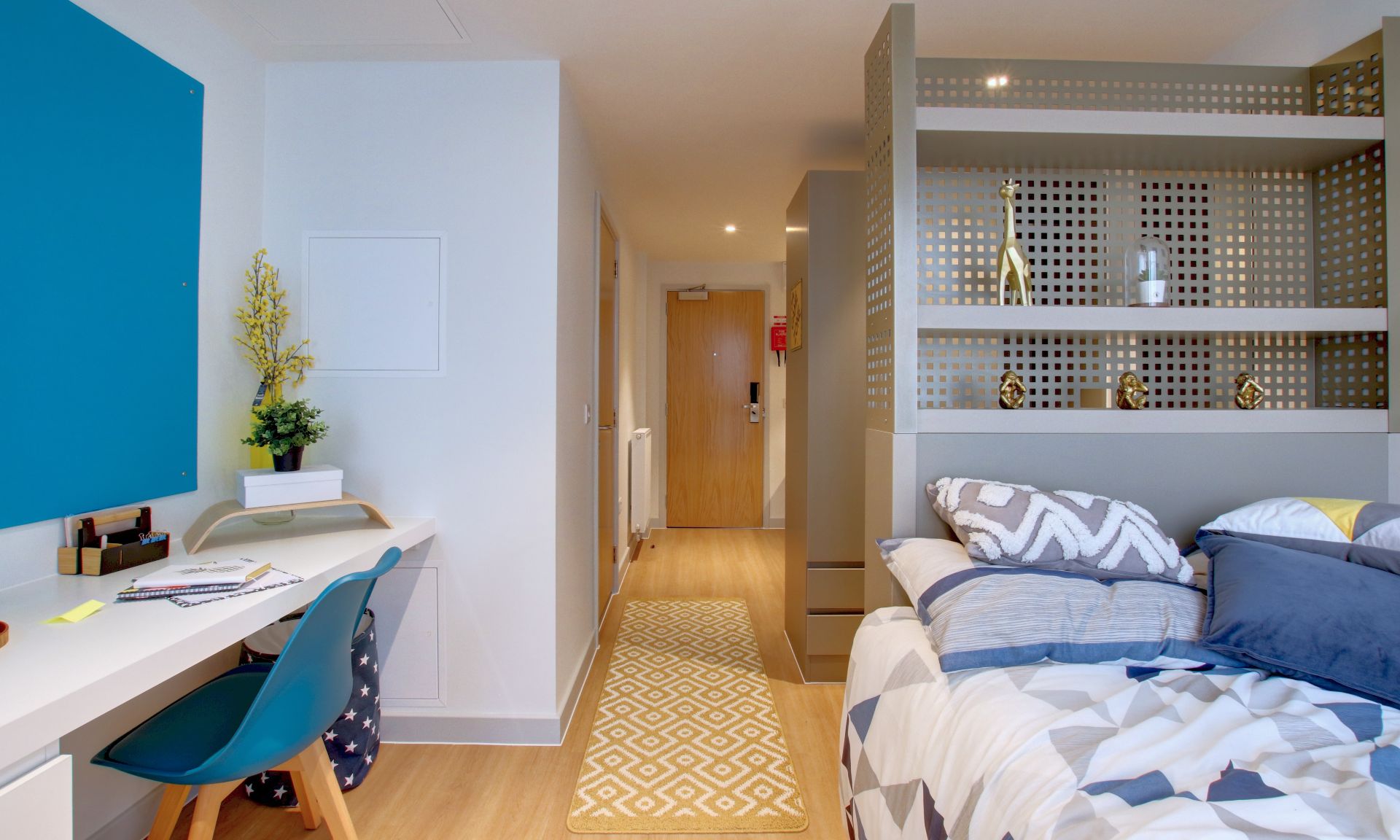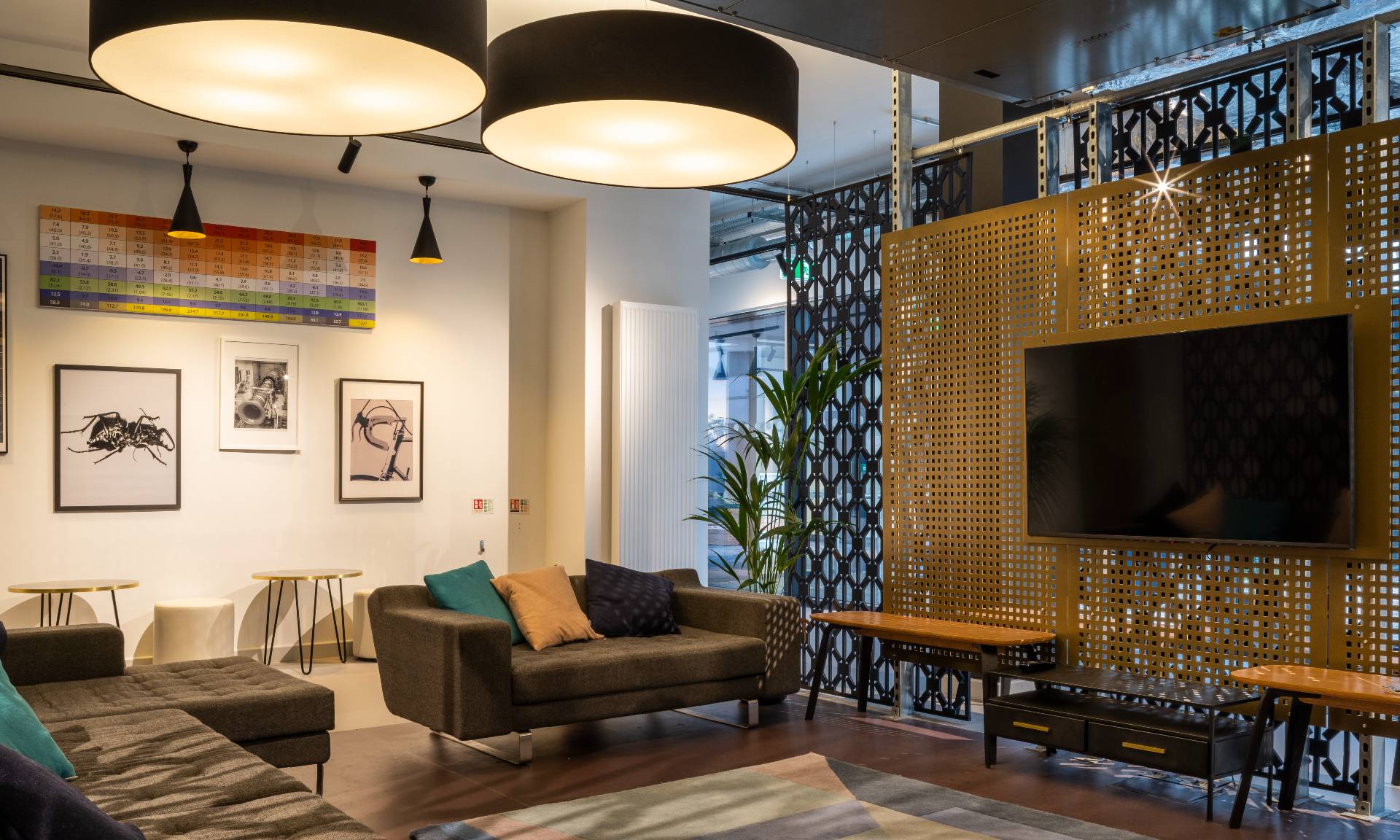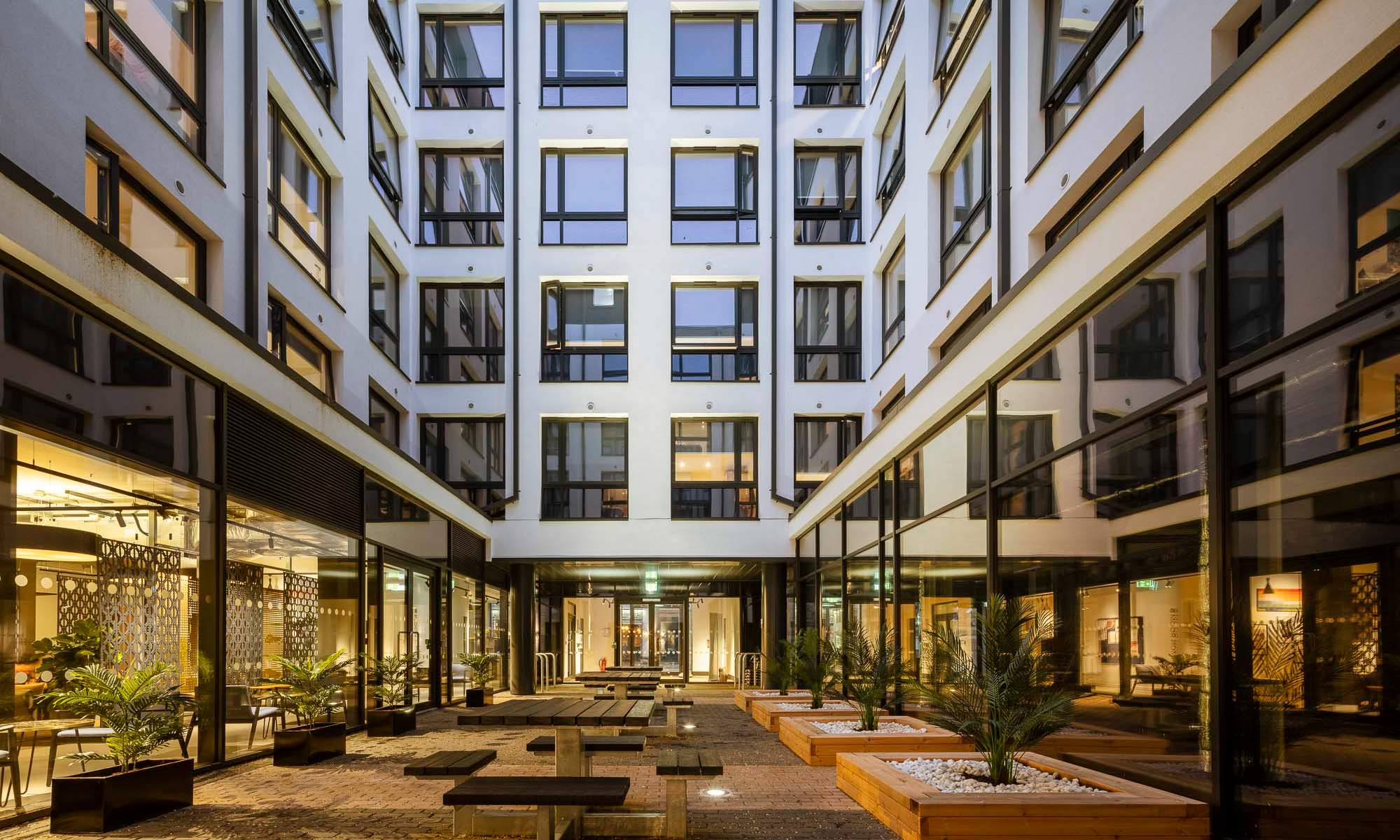Reshaping student accommodation, the future is wellness in design by James Potter of WGP Architects
Students had a hard time during the pandemic; enforced isolation when most are looking to expand social horizons and courses forced online, albeit this is to greatly simplify events. Here we are in 2022 and we’ve already borne witness to yet more global challenges and uncertainty. Your typical student in the UK now bears a significant existential burden on top of the general rebuilding of confidence in the post pandemic higher education system. Be it humanitarian disaster, climate change, dwindling natural resources or rising cost of living, the window of opportunity for the carefree ‘good times’ when learning and socialising were all that mattered, has narrowed. Its sadly an ever more adult world for those leaving school to inhabit and a more opaque one for those from foreign lands coming here to study.
At the time of writing, student dissatisfaction is national news again with a BBC headline noting student complaints being at an all-time high in 2021 albeit much of this was due to a backlog in processing complaints made during the pandemic in 2020. The pandemic caused such upheaval that we’re still in the process of understanding how it affected students and how to correct the negative aftermath (its worth noting not all outcomes were bad - digital learning greatly augmented traditional face-to-face tutoring, taken forwards by many institutions, if not all).
Momentum appears to be building to change and improve the post-pandemic student world as highlighted in UPP Foundations’ Student Futures Manifesto. UPPs work covers research undertaken during the course of 2021 canvassing and analysing the opinions of thousands of individuals, student action groups, University staff and key decision makers in order to paint a legible picture of the problems and how to fix them. Unsurprisingly there are no silver bullets - within their findings are some references to other research by the ONS who found noticeably higher rates of anxiety and loneliness in the student population relative to other areas of society during the pandemic – a call to arms for any of us who cares about the young people transitioning from adolescence to adulthood. As UPP summarises, students were ‘..worried about making and maintaining friendships and fearful about professional interactions with academics and future employers, had low underlying confidence in the system…’. These issues were found to be amplified in the most disadvantaged students, a double blow.
Perhaps the familiarity many of us have with the problems faced by students (loneliness, disenfranchisement, anxiety), risks belittling their significance; it is the scale of the problem and the sensitivity of who it is affecting, generally younger minds, that must be fixed.
It’s a big subject matter relating to large institutions. Given this magnitude, how can us architects do our bit in the way we design the environments students live in?

At WGP Architects we focus on doing our little things in very big world. Our mantra, that we feel sets our stall for creating mature (and assured/confident), welcoming, social and secure environments for those continuing adult education is, first and foremost; don’t patronise students. Patronising takes many forms; the way students are taught as well as the places they’re offered to live and work. It all sends a tacit message about how we value the role of students and universities in society. Mindful of this it seems logical to treat the student market as being every bit as discerning and refined as any other, albeit they can choose to be neither of those things after a pound-a-pint night at the Union bar (£5 a-pint accounting for inflation). Given the introduction of this article one feels they’ve already earned that prerogative.
For decades it felt as though we’d been continuing under the misapprehension that these young (sometimes older) adults are more robust and un-sensitive to environmental conditions than in fact they are. It is telling to see how some commercial student accommodation providers have decided that student accommodation no longer means gaudy ‘youthful’ colours, nor does it mean themed trinkets and wall art reminding them of whichever city they’ve ended up in.
For some time now, the cutting edge of commercial student accommodation has taken cues from the contemporary long stay apart hotel model. There are examples in mainland Europe, like the Student Hotel group, where this sector merge is literal with accommodation and facilities geared around students, professionals and business customers sharing as one. Its great to see this approach being taken as it successfully challenges the notion of separating the stages of professional and personal development when arguably there needn’t be such a distinction – life is one continuous learning experience.
So, are these examples the ultimate expression of where the sector is going? And do they offer the best solution to the problems left behind in the wake of the pandemic? We’d say there’s milage in it certainly as it is anything but patronising. The hotel aspect is interesting; whilst long stay hotels can be physically similar, their core market is more transient than that of students looking to develop lifelong associations and be permanent members of a local community for a number of years. This could be seen as a negative response to the challenge laid out by UPP and observed by others, albeit this direct mix of hotel and student accommodation accounts for a fraction of accommodation overall and undoubtedly works well for those opting to live there.

So having been a champion of treating students as having environmental sensitivities the same as working, independent discerning adults, are we now at risk of taking them too far away from the premise of what was once ‘sacrifice in the name of learning’ that seemed prevalent when we studied some 30 or so years ago. Sacrifice used to translate to compromises in financial and living conditions but the situation now feels far less binary. Reaffirming the importance of education, the unity and support an educational establishment can give and the overall wellbeing of everyone attending isn’t necessarily helped by plonking a student in a fancy looking pseudo hotel room, as appealing as that sounds.
Perhaps there needs to be a reversion to something simpler, and more targeted at the core values and reasons that people go away to study at a university. This doesn’t necessarily mean back pedalling on the quality of such spaces the likes of the Student Hotel and others are making – many of which are of a very high standard – but to think closely as to whether the ever-increasing merge of sectors is providing students the most tailored environment they need to excel.
Regardless of what the correct solution may be, as designers it is essential for us to have in mind the findings of the UPP manifesto when next putting pen to paper, and how we can play our part, modest as it may be.
Sadly, the ability to exist simply to learn (and drink beer) may not be as simple to achieve as it once was, albeit perhaps it is patronising to have ever considered it that simple in the first place. Growing up isn’t straightforward.
WGP are a RIBA Award winning practice who specialise in alternative residential projects. They are currently working on a number of PBSA projects, incorporating fabric first design and wellness into the buildings.
For further information please visit https://wgp-architects.com/


